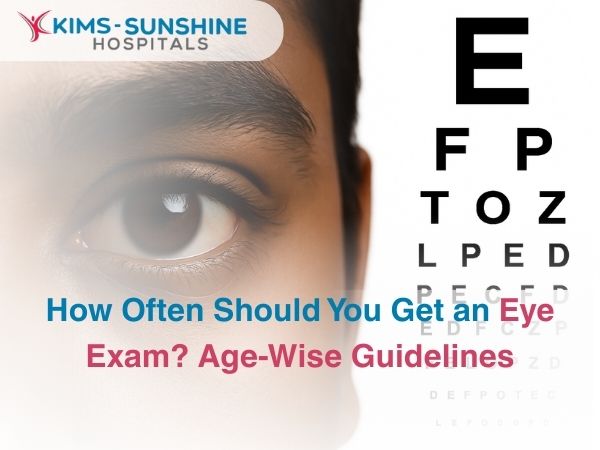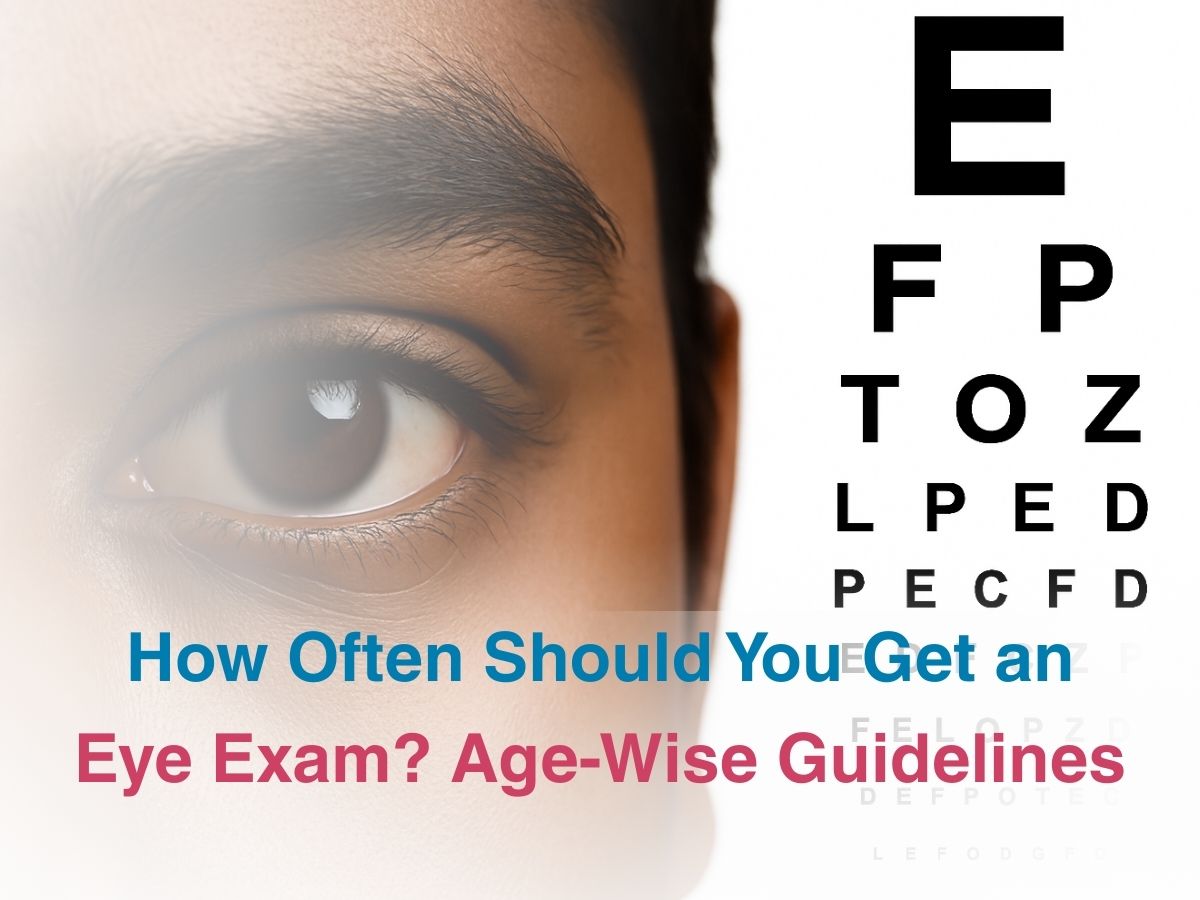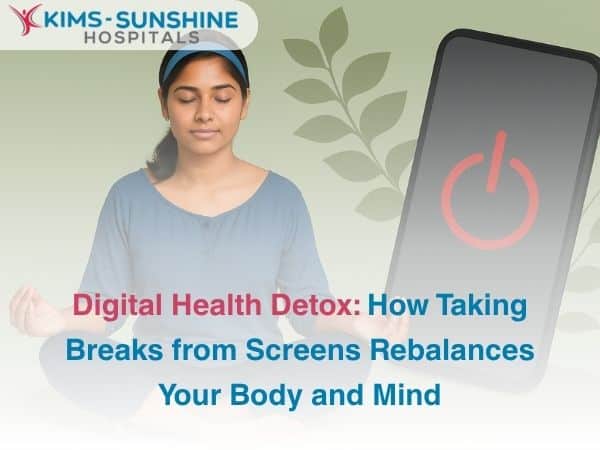
How Often Should You Get an Eye Exam? Age-Wise Guidelines
How Often Should You Get an Eye Exam? Age-Wise Guidelines
In the relentless pace of modern life, where screens glow from the moment we wake until long after the sun has set and where our eyes absorb the brunt of digital overload, erratic sleep schedules, pollution and fatigue, it’s no surprise that adults often ignore the very organs that work the hardest.
For Indian adults aged between 18 and 39, especially those who don’t use glasses or lenses and have no known vision issues, visiting the eye clinic once every two years might seem sufficient, but considering the exponential rise in screen time, the urban stressors we navigate, and the polluted air that constantly dries and irritates the eyes, an annual check-up is fast becoming more of a necessity than a suggestion.
Eye Exam Frequency For Children By Age
Children’s eyes are like uncut gems, still forming, still polishing their clarity with each passing year and in a country like India, where blackboards, smartphones, and exam-heavy schooling put considerable visual demands on young minds, early detection of eye problems becomes not just useful but essential, because what starts as a mild squint or unnoticed blurriness can soon cascade into academic struggles or even lifelong vision damage.
From birth to 12 months, while most parents focus on vaccinations and growth milestones, very few think of eye health. A basic ocular screening is usually done by a paediatrician to rule out congenital cataracts, lazy eye, or structural abnormalities. Between 1 and 3 years of age, the eye-brain connection strengthens rapidly and during this window, conditions like strabismus (crossed eyes), amblyopia (lazy eye), or uncorrected refractive errors can still be treated with astonishing success. At 4 to 5 years, just before formal schooling begins, vision checks become critical – not only because children begin reading and writing, but because unaddressed vision issues can masquerade as attention deficits or learning delays. Lastly, for school-age children between 6 and 18, the visual demand increases exponentially and vision changes can happen quickly, sometimes within months, as the body undergoes growth spurts, hormonal changes, and increased screen exposure.
When Should Seniors Get A Comprehensive Eye Exam?
As the body ages and the senses slow down, the eyes, though ever-watchful, begin to reflect the quiet erosion of time. Cataracts form like a cloudy curtain, peripheral vision shrinks silently due to glaucoma and retinal layers thin or bleed from long-standing diabetes – all of which can be caught early and managed, but only if seniors undergo comprehensive eye exams regularly. You should not go just when vision loss becomes apparent.
Importance Of Regular Eye Exams In Early Detection
In India, where lifestyle diseases like diabetes and hypertension often go undiagnosed for years and where people tend to seek treatment only when symptoms become disruptive, the eye becomes a valuable diagnostic tool – as diabetic retinopathy, hypertensive changes, or optic nerve damage can all be seen clearly during a detailed retinal scan or a dilated fundus exam, sometimes even before blood sugar levels reach alarming heights.
Conclusion
In a nation like India, where healthcare access is improving yet still uneven and where the noise of daily life can drown out the whispers of slow-building ailments, the eyes remain our most underappreciated storytellers- they carry tales of health, illness, emotion, fatigue, and resilience. Yet, we are guilty of listening only when they scream, when vision blurs or pain begins.Eye exams, hence, should not be reserved for emergencies or prescription renewals, but treated as essential check-ins, like financial audits or engine servicing, because their true value lies in what they can pre-empt and not just what they can confirm. When scheduled thoughtfully across different life stages- from curious toddlers learning their first colours to wise elders preserving their final memories- these checkups become powerful guardians of both health and independence.







